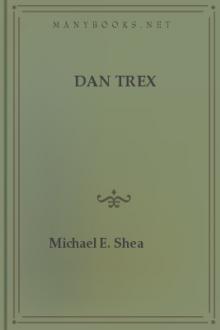How to Be a Mentsh (and Not a Shmuck) by Wex, Michael (summer reading list txt) 📕

Read free book «How to Be a Mentsh (and Not a Shmuck) by Wex, Michael (summer reading list txt) 📕» - read online or download for free at americanlibrarybooks.com
Read book online «How to Be a Mentsh (and Not a Shmuck) by Wex, Michael (summer reading list txt) 📕». Author - Wex, Michael
II
TO KNOW WHAT your duty is, though, you already have to be a mentsh; and the first thing that you’ll notice about any mentsh is that he is not a kid. There’s a well-known Yiddish proverb that holds that a parent’s duty is to make mentshn out of children—to turn undeveloped raw material into men and women who can turn around and do the same thing in their turn.
A child might do the right thing, but it isn’t considered capable of doing so for the right reasons until it has reached a certain age:
“A poor but wise boy is better than an old and foolish king” (Ecclesiastes 4:13). “A poor but wise boy”—this is the inclination to do good.
Why is it called a boy?
It only joins itself to a person at the age of thirteen.
Why is he called poor?
Not everyone listens to him.
And why is he called wise?
Because he teaches human beings the proper path.
“An old and foolish king”—this is the evil urge.
Why is he called a king?
Everybody listens to him.
Why is he called old?
He stays with a person from birth to death.
Why is he called foolish?
He teaches human beings the paths of evil.
And why is he described as not knowing how to take counsel? Because he does not know how much sorrow and suffering he brings upon himself and therefore takes no precautions against them.
(ECCLESIASTES RABBO 4:9)
No wonder Yiddish-speaking parents never compliment their children; the little devil on the kid’s left shoulder has yet to be balanced by a preachy little angel on the right: a kid who isn’t following direct adult orders can only do the right thing by virtue of prior adult instruction or by accident. Jewish tradition looks at childhood as something to be got through, like boot camp or a lengthy dental appointment. Youth is a liability—just ask any kid—a forced layover on the path to adulthood and responsibility. While twelve-hour school days and slapstick notions of discipline certainly contributed to this desire to graduate into maturity, the same impulse can be seen today—better, can be heard—in any Hasidic community, where little boys do their best to mimic the singing and gestures, not of their fathers, but of their grandfathers and the other old guys at shul.
The traditional Jewish view of childhood is that we’re born stupid and have to be nudged along into mentsh-hood. Twenty-four hours after a boy turns thirteen (twelve years and a day for girls), childhood comes to a sudden end. Not that anyone has ever considered a thirteen-year-old kid anything other than a pisher who’d best keep to his place, but now that he is old enough to count for a minyan, the traditional quorum of ten men needed for communal prayer, he is as much a full-fledged citizen as any unmarried person can be, and he damned well better act like one: “If a boy is Bar Mitzvah and still likes to play, people make fun of him and tell him that he is supposed to be a mentsh. And girls the same thing.” Traditional Jewish society would react with undisguised horror to our notion of an inner child: “What, we’re born with two assholes now?”
Still, childhood plays a crucial role in the growth of the idea of a mentsh. The Yiddish mentsh seems to have evolved from its German forebear on the far side of the door to the kheyder, the traditional Jewish elementary school. The basic study technique in such schools still consists of reading a passage from the Bible and translating it from the original Hebrew into Yiddish: if we make allowance for the fact that the Bible is not really in English, the beginning of Genesis would come out as, “In the beginning, in onheyb, God created, az got hot bashafn, the heavens and the earth, di himlen un di erd.” Any necessary explanations are also added; if these come verbatim from traditional sources, those other sources are quoted and translated in their turn.
Students soon learn that the Yiddish mentsh can represent at least four different biblical words that mean “man” or “person.” According to the proverb, “Odem is a mentsh and ish is a mentsh and enoysh is a mentsh and geyver is a mentsh” but, we’re warned, “a mentsh isn’t always a mentsh”—a human being isn’t always a mentsh. The first two Hebrew words, odem (which gives us “Adam”) and ish (think of the Is in Judas Iscariot) are the ones that really concern us. The third, enoysh (whence the English name Enos), is pretty much synonymous with odem (most commentators say that it places more emphasis on the lowliness of the human condition), while geyver is limited to males and can also mean “cock” or “rooster.”
Odem refers to the entire human species, regardless of age or sex. So we find “from the first-born human [odem] to the first-born animal” (Exod. 13:15); and “whoever kills a human being [odem] will surely be put to death” (Lev. 24:17). An ish is an adult male; its female counterpart is isho. Although some meanings of ish depend on the presence of a penis (“husband,” for instance), others can easily be extended to either sex, since Hebrew uses the masculine form to refer to any indefinite person: “someone,” “anybody,” “nobody,” “somebody.” The “whoever” in the verse from Leviticus just quoted provides a fine example of this use of ish. No one has





Comments (0)